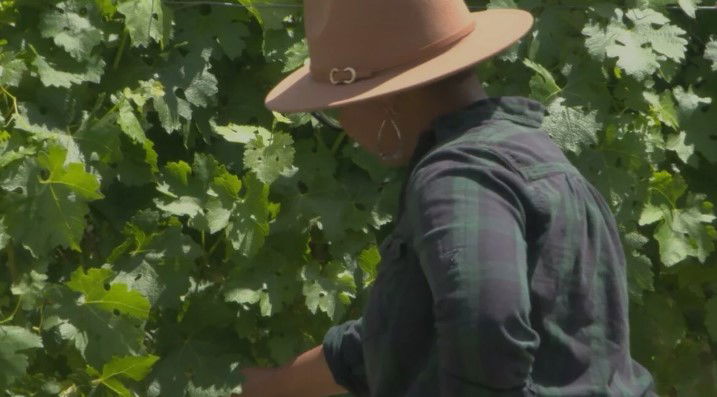Grapevine sensors help winemakers safeguard harvests from smoke taint, preserve quality

Wildfire smoke can seep into grapes and alter the taste of wine
By Dan Hanson, KAPP
Click here for updates on this story
BENTON CITY, Washington (KAPP) — As wildfire seasons grow longer and more intense across the West Coast, vineyards face a new and unexpected threat that doesn’t require flames to cause damage.
Wildfire smoke can seep into grapes and alter the taste of wine, creating what the industry calls “smoke taint” — a phenomenon that can ruin entire vintages and devastate winemakers’ bottom lines. Even when fires burn miles away from vineyards, waves of smoke can leave their mark on grape crops, literally changing the flavor profile of the resulting wine.
Researchers at Washington State University are working to understand how wildfire smoke penetrates grapes and what winemakers can do to prevent contamination. The university’s wine science program has deployed sensors in vineyards to monitor smoke exposure levels, helping vintners make informed decisions about their crops.
“We were all worried about smoke taint. You know we get fires around, and as winemakers, it’s like the top of mind,” said Shae Frichette, co-owner of Frichette Winery. “I’m grateful for WSU, the wine science program, because they have sensors in vineyards, and they were able to talk to us about even if there were traces. So for some vineyards, there were such small traces that even for us tasting wine, we couldn’t pick it up.”
The threat represents a significant challenge for the wine industry, particularly in regions prone to wildfires. One bad smoke event can taint an entire vintage, affecting not only the wine’s flavor but also the financial stability of wineries that depend on consistent quality for their reputation and sales.
Frichette knows the risks all too well, though she says she has been fortunate never to deal with smoke taint directly. The monitoring systems developed by WSU researchers have provided crucial data that helps winemakers like her assess whether their grapes have been exposed to harmful levels of smoke compounds.
The research comes at a critical time as climate change contributes to more frequent and severe wildfire seasons throughout wine-growing regions of the West Coast. Traditional fire prevention methods that focus on protecting vineyards from flames are insufficient when smoke can travel vast distances and contaminate grapes without any direct fire contact.
WSU’s wine science program represents part of a broader effort to help the industry adapt to changing environmental conditions. The sensors placed throughout vineyards can detect smoke particles and compounds that contribute to taint, providing winemakers with real-time data to inform decisions about harvest timing, grape processing, or whether to use affected fruit at all.
The economic implications extend beyond individual wineries. Wine tourism, a significant economic driver in many regions, relies on consistent quality and a strong reputation. Smoke-tainted wines can damage not only a single vintage but also long-term brand recognition and consumer trust.
As wildfire seasons continue to intensify, the wine industry’s ability to adapt to smoke threats may determine which operations survive and thrive. The ongoing research at Washington State University offers hope that scientific solutions can help preserve both wine quality and the livelihoods of those who depend on grape growing and winemaking.
The collaboration between researchers and winemakers, such as Frichette, demonstrates how academic institutions and industry can work together to address the emerging challenges posed by climate change and environmental shifts affecting agricultural communities across the West Coast.
Please note: This content carries a strict local market embargo. If you share the same market as the contributor of this article, you may not use it on any platform.
